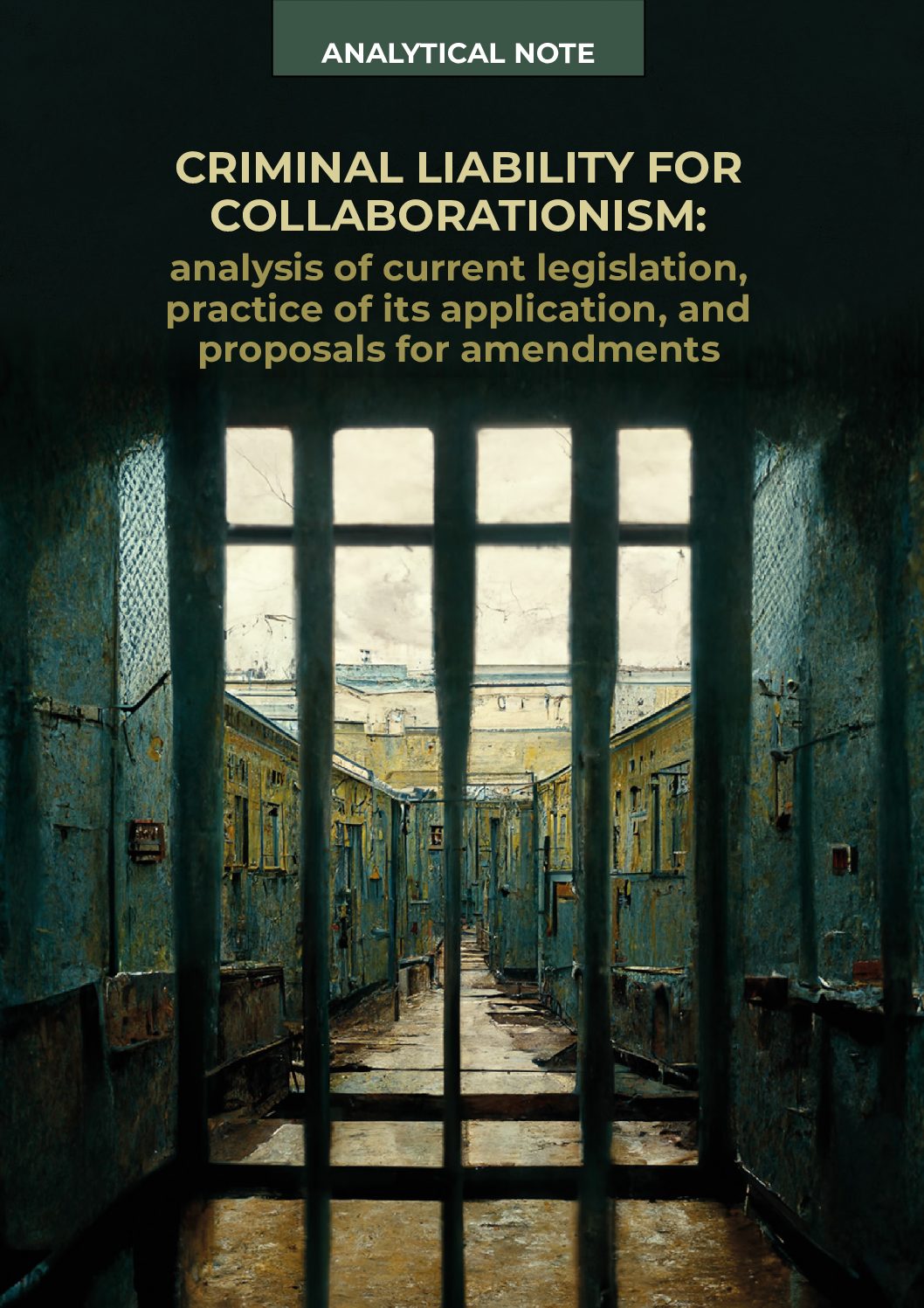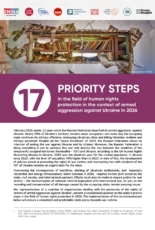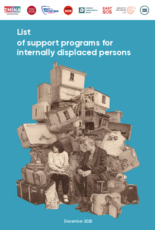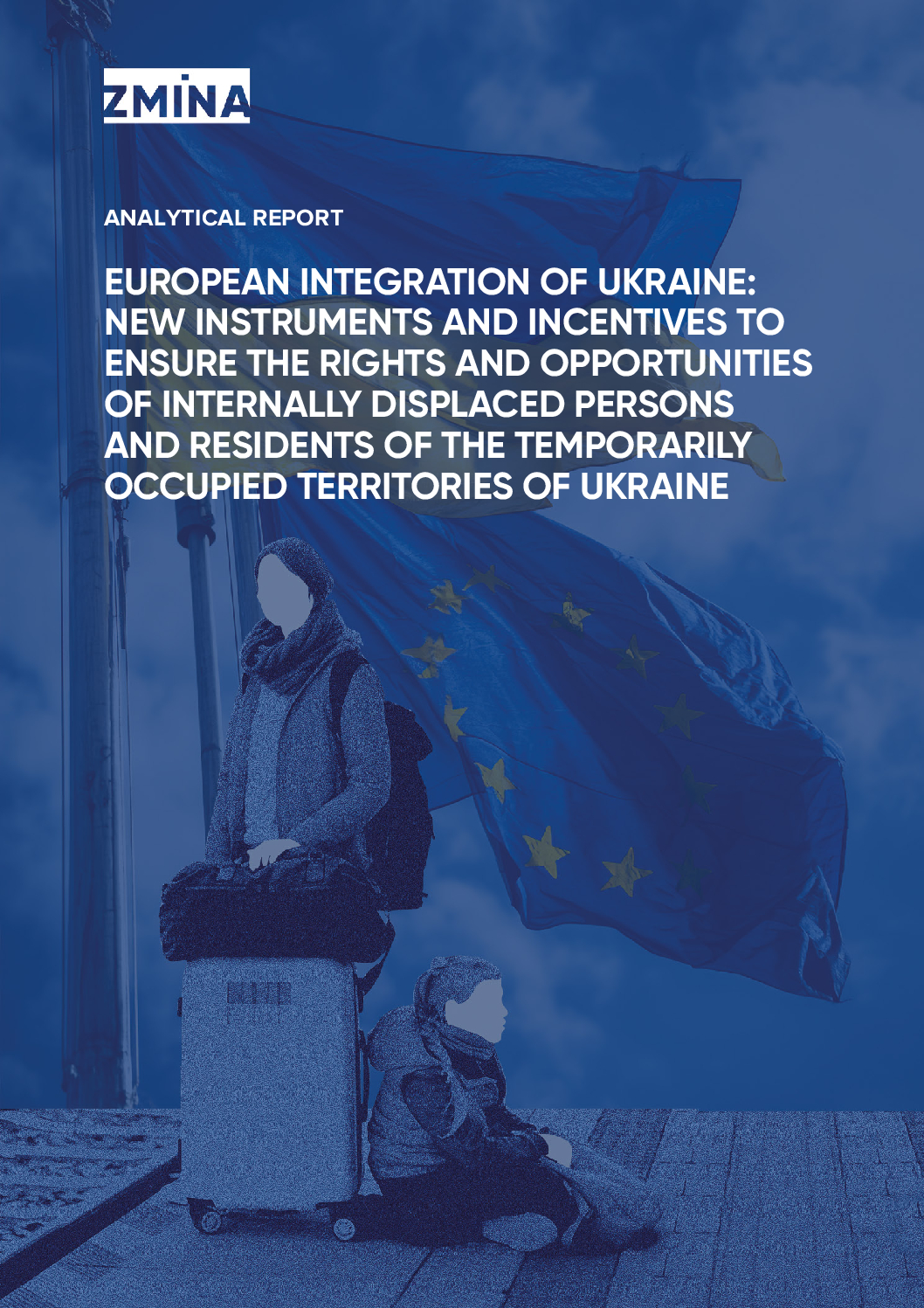Criminal liability for collaborationism: analysis of current legislation, practice of its application, and proposals for amendments

The analysis of the legislation on liability for collaborationism was prepared by the experts of the Coalition of NGOs for Protection of the Rights of Persons Affected by the Armed Aggression of the Russian Federation against Ukraine: NGO “Human Rights Centre ZMINA”, NGO “Civil Holding “GROUP OF INFLUENCE”, NGO “Donbas SOS”, NGO “Crimea SOS”, Charity Foundation “VostokSOS”, Charity Foundation “Stabilization Support Services” and NGO “Crimean Human Rights Group”.







